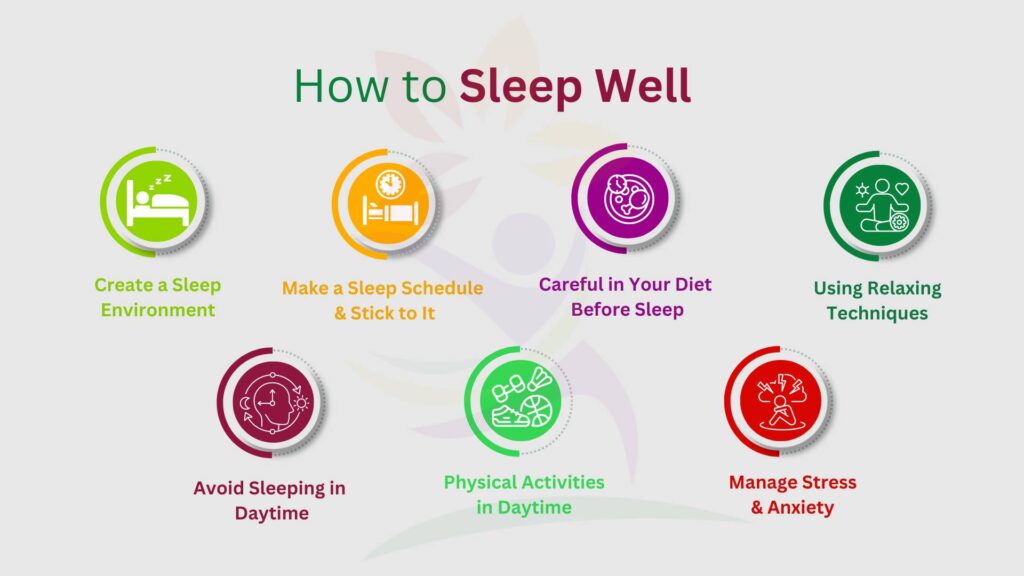Getting proper rest might seem like a dream for some people as they cannot get a good sleep each night, even if they are in their beds early. There may be many reasons for this, but the consequence is a tired body, numb mind, and weary eyes in the morning.
Quick Links
ToggleThis situation not only irritates you but also makes it difficult for you to work. While the condition is discomforting, a few simple tips and healthy habits can help you sleep well.
Understand Your Sleep Needs
Everyone has different requirements. Some people feel refreshed and energized after taking merely 4-5 hours of sleep. Others might need 8-9 hours to take proper rest. So, to take a good rest, you need to understand what sleep duration you need to refresh. To understand your requirements, experiment with different sleep durations and analyze how you feel throughout the next day to find what works best for you.
1- Create A Good & Supportive Sleep Environment

You are getting sleepy need a specific environment. While this environment also varies from person to person, a few considerations can be made. Most people find it easier to sleep in a cool environment. Low temperature helps to cool down your body temperature which signals the brain to induce sleep. Normally 18°C – 20°C is the best temperature to sleep.
Bright light also makes it difficult to sleep as it signals your brain to be active. Keep the lights dim or off to make your brain relax and enter sleep mode. Also, ensure you don’t be in the bright light just before lying. Stop using your phone, computer, or TV at least two hours before your bedtime.
To create a more relaxed environment, reduce the noise around you. Limit the machines or things that create noise in your bedroom. You can also use earplugs or white noise machines to reduce sounds in your bedroom. All these things can help create an environment optimized.
2- Make A Sleep Schedule and Stick to It
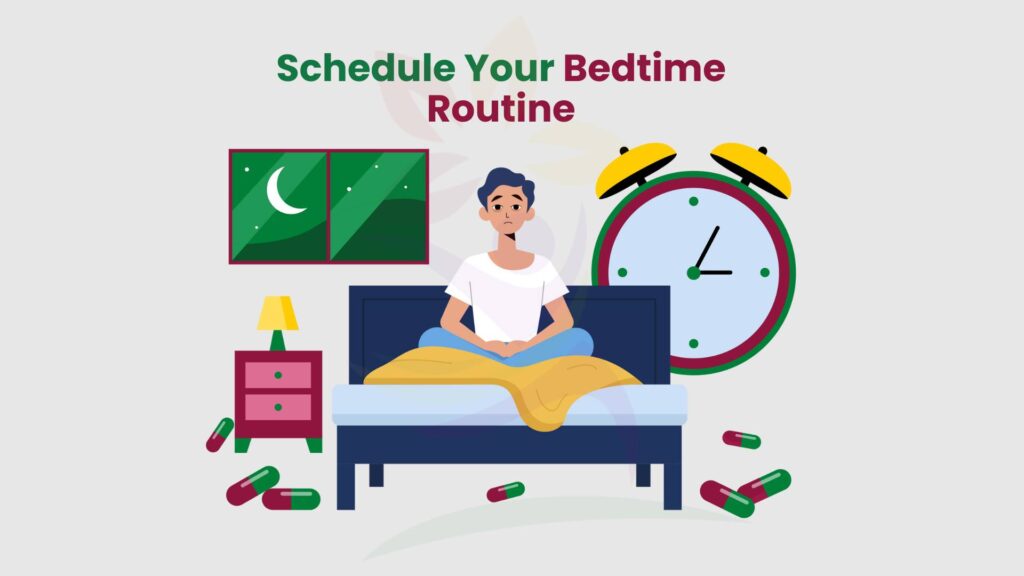
Try to be consistent in your bedtimes. At the same time, each day will help you set a routine and your body will slowly get used to it.
So you’ll automatically get sleepy at your bedtime. The same thing applies to your wakeup time. When you set bedtime and wake-up time according to your sleep requirements and stick to it, you’ll start enjoying relaxing sounds and rest.
Don’t forget to follow the same schedule on weekends.
3- Be Careful in Your Diet Before Sleep

Eating large and heavy meals requires the body to work to digest it. And when you take such heavy large meals just before you go to bed, your body cannot fall asleep as it needs to work to digest your food. It is therefore recommended to avoid such food in your dinner. If you feel hungry, grab a light snack. Better if you have your dinner at least 3-4 hours before bedtime.
Avoid having coffee or tea before bed, as these contain caffeine which keeps your mind awake. Also, avoid smoking or other nicotine products.
Alcohol also disrupts your deep sleep cycle, therefore, it is better to stay away from it.
4- Practice Relaxing Techniques

Practicing relaxation techniques before you can help your mind and body relax and induce. A few of them are:
- Close your eyes, keep your feet flat if you are sitting or standing, and take a slow and deep breath to fill your lungs with air, hold the air in your lungs for a few seconds, and then release. It is better to breathe in through your nose and out through your mouth. Take a few such deep breaths. It will help relax your mind and body as each body cell gets oxygen.
- Tense a muscle group such as your arm or leg, then relax. Repeat the process with all muscles. It will help release the tension in muscles.
- Relax your mind and body through meditation or mindfulness practices.
5- Excessive daytime sleepiness
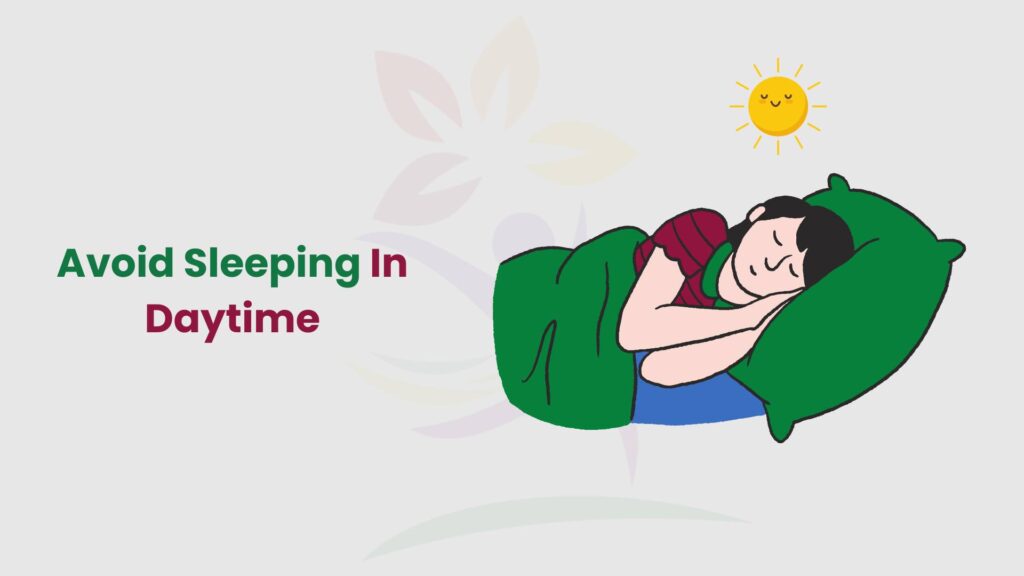
Avoid sleeping during the day as an already relaxed body and mind can’t sleep. Make sure you are tired enough to relax. Also, reduce or limit your power naps to 20-30 minutes, so you can be sleeping as well.
If you often feel sleepy during the day, it might help to improve your nighttime sleep routine. Try to go to bed and wake up simultaneously every day, even on weekends. Avoid caffeine and heavy meals close to bedtime, and create a relaxing environment to help you sleep better. Making small changes like these can reduce daytime sleepiness and help you feel more energized throughout the day.
6- Engage in Physical Activities in Daytime
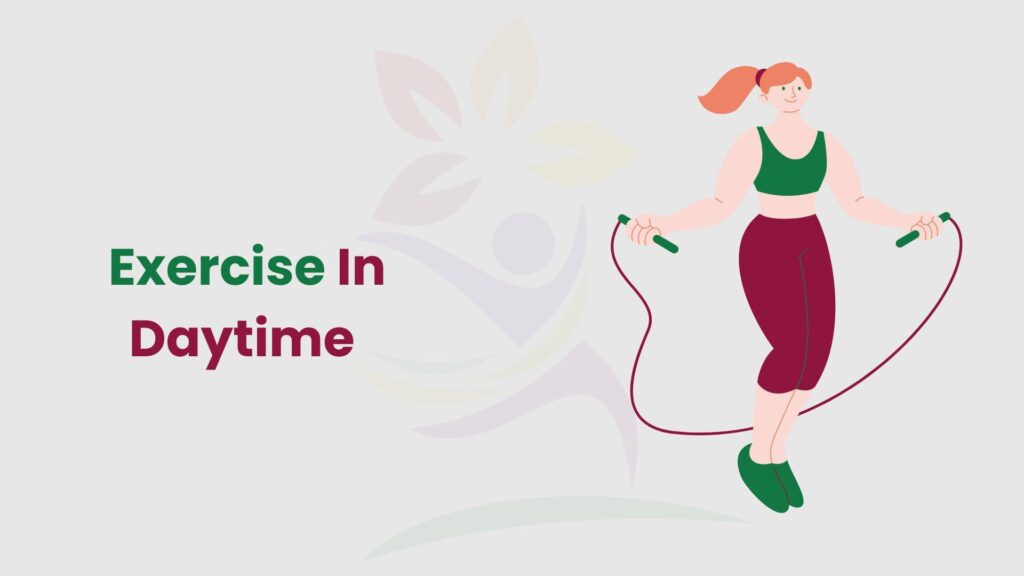
Physical activities such as exercising daily, not only make you active during the day but also promote better sleeping the night time. When you engage in physical activities your body becomes tired and can get into sleep easily.
However, make sure not to do any heavy exercise or activity close to your bedtime as it will take your body to an active and alert state, making it difficult to sleep.
Adding regular physical activities, like walking or stretching, to your day can help you sleep better at night. It balances your body’s natural rhythm, making it easier to fall asleep. Keeping a consistent routine will also boost your energy and make you feel better overall.
7- Manage Stress & Anxiety
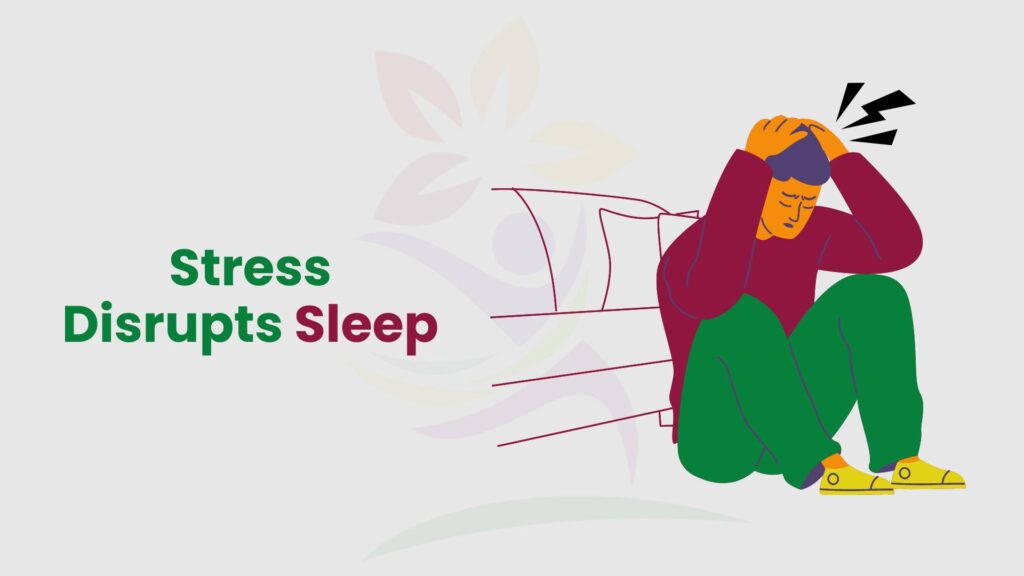
Stress and anxiety are the common causes of sleep-related issues. Therefore, to soothe insomnia and to get better sleep, it is essential to cope with stress and anxiety.
If you are one of the people who think about all matters before sleeping, you need to set aside some time to think about all concerns in the evening, so you don’t have tangled ideas to think about at your bedtime. Engage in relaxing hobbies like reading books, or listening to music to calm your nerves.
When to Contact Your Healthcare Provider
Everyone experiences a sleepless night now and then, but if you frequently struggle with sleep, it’s time to reach out to your healthcare provider. Addressing the root causes can lead to better, more restful sleep.
CONSULT NOW!
Book An Appointment
Conclusion
By practicing these small and easy tips and tricks, you can drastically improve your sleep quality. Experiment with these techniques and make adjustments according to your requirements.
However, if you are not able to sleep after trying all these tips, you might be suffering from a sleep disorder like insomnia or sleep apnea. In this situation, it is better to consult with a healthcare professional and discuss your condition. They can guide you to the right solution to your problem, either through therapy or medication. At Fitwell Hub, We have expert practitioners to help you cope with your sleep disorder and get consultation and medication without leaving the comfort of your home. Book an appointment now to get started.

